
Enhancing Student Outcomes and Teacher Practice through Math Mastery: A Comprehensive Study Tour and Curriculum Framework Development.
As a primary school teacher with ten years of classroom experience, I’ve had the opportunity to teach across year levels from Prep to Year 3. Throughout my teaching journey, I’ve developed a strong passion for ensuring that every student feels a sense of success in the classroom and equally, that every teacher feels confident and equipped to deliver high-quality lessons. Over time, I’ve become increasingly interested in how we can bring greater consistency and clarity to the way we teach mathematics across the early years.
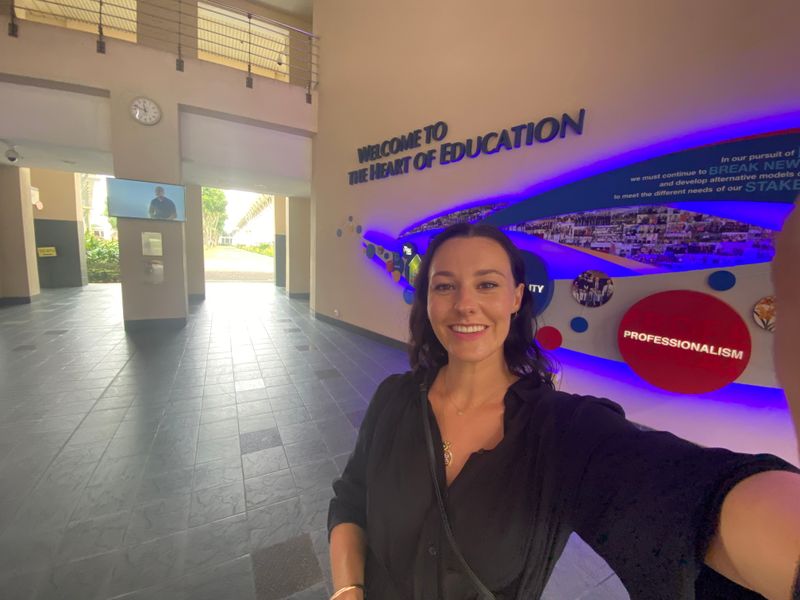
In 2024, I was fortunate to be awarded the inaugural Toowoomba Grammar School Teaching Fellowship to explore this interest more. My proposal, titled Enhancing Student Outcomes and Teacher Practice through Math Mastery: A Comprehensive Study Tour and Curriculum Framework Development, focused on investigating how the Math Mastery approach could strengthen both student understanding and teacher instruction in mathematics. This opportunity took me to Singapore to investigate the Math Mastery approach - an internationally recognised model of mathematics instruction that supports every student to achieve deep understanding through carefully sequenced, explicit teaching.
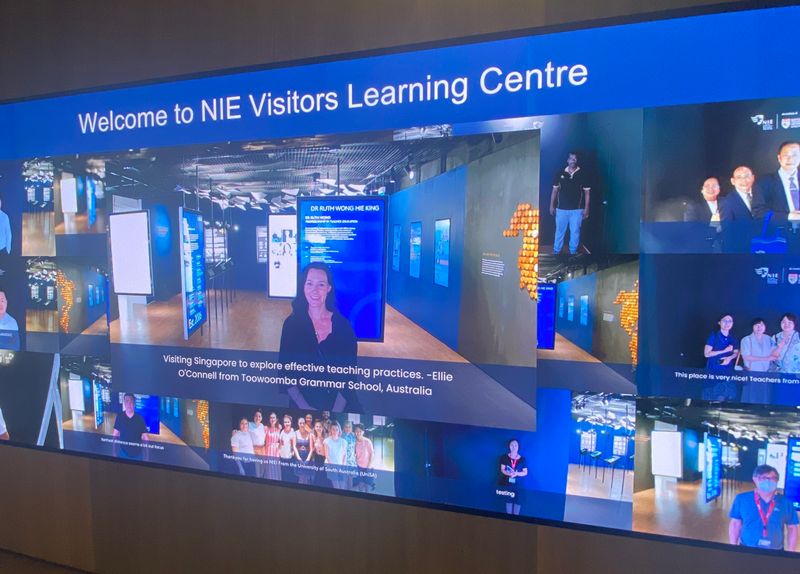
Why Mathematics? Why Now?
Across Australia, there is growing national concern about the long-term decline in mathematics achievement. Reports such as the Gonski Review (2018) highlight that many students are not mastering the basic skills needed for future learning, and that teachers need more explicit, structured tools to support all learners. In the early years of schooling—where concepts are first introduced, and mathematical mindsets are formed—it’s crucial that instruction is clear, consistent and effective. Gaps in understanding at this stage can have long-lasting effects on a child’s confidence and progress. The fellowship was an opportunity to examine international best practices and bring back evidence-informed strategies that could enhance both student outcomes and teacher practice in our own School.
Learning from Singapore: Schools and Insights
During my study tour in Singapore, I visited two leading international schools: Dulwich College and Invictus International School. Both schools use mastery-based approaches to mathematics, with structured, well-sequenced programs designed to develop deep conceptual understanding. At Dulwich College I observed math lessons from Years 1 to 5 that emphasised both mastery and practical application. The classrooms fostered a calm, focused learning environment in which teachers guided students through new concepts using clear, structured instruction, ensuring mastery through modelling, guided practice and checking for understanding before progressing. I also engaged in discussions with the school’s mathematics leadership team, who shared their planning processes and how they support teachers to differentiate within whole-class teaching.
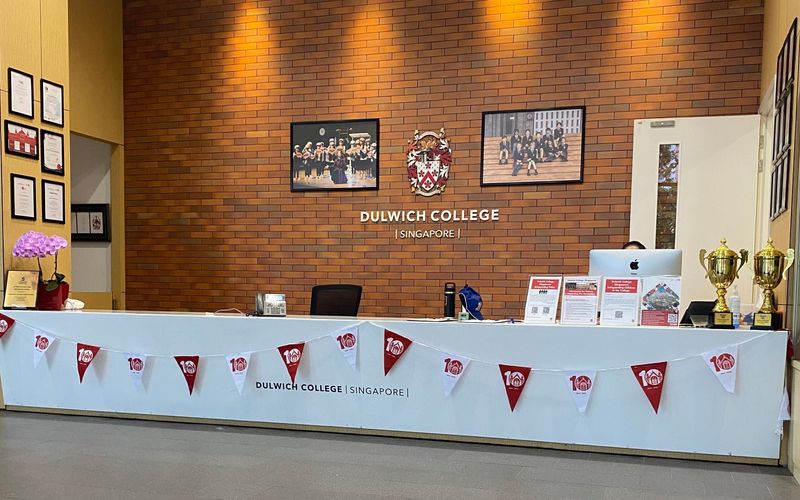
Invictus International School offered a contrasting yet equally valuable perspective. With a diverse cohort of learners and a flexible curriculum model, their team demonstrated how mastery principles can be embedded in a range of contexts. I also had the opportunity to meet with local educational consultants and curriculum developers, who offered insights into how Singapore’s national curriculum supports cumulative learning, daily review and concept mastery from the early years onwards.
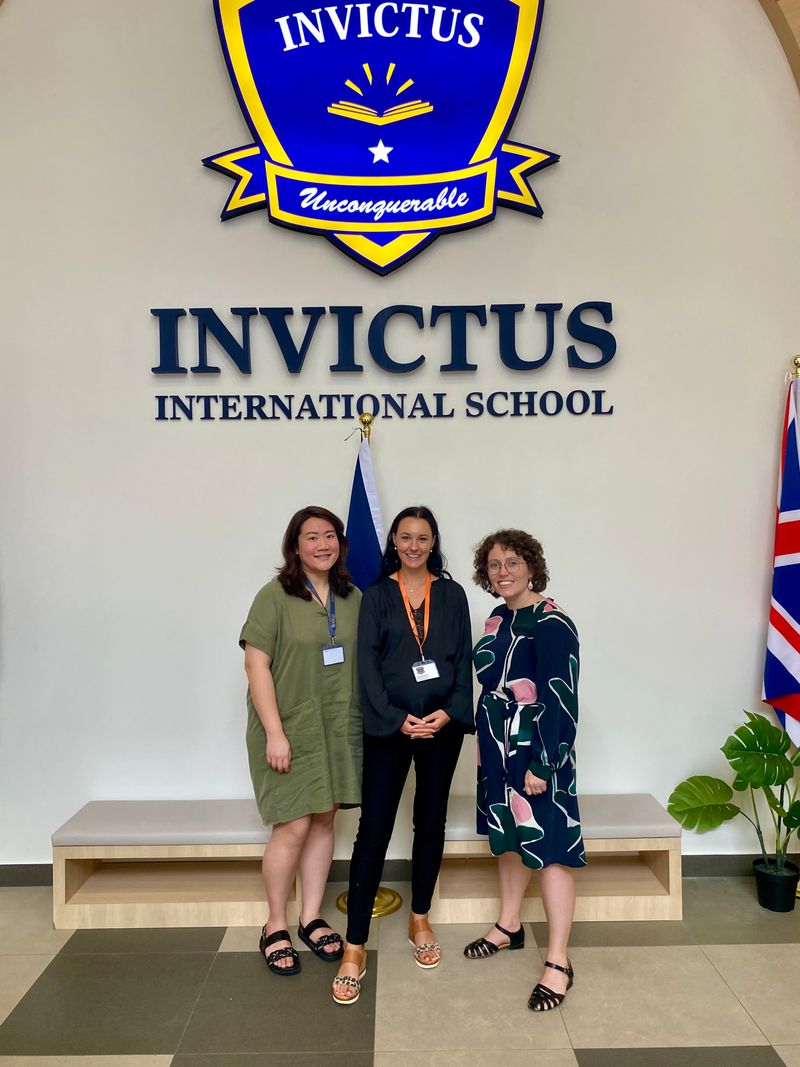
Key Findings: What Makes Mastery Work?
My observations confirmed the power of structured, explicit teaching in building strong foundations in mathematics. These were the key elements that stood out across all settings:
- Clear Learning Objectives
Teachers clearly define what students need to know and be able to do at the end of each unit or lesson.
- Whole-Class Instruction with Embedded Differentiation
Rather than streaming students by ability, mastery classrooms taught concepts to the whole class while using questioning, scaffolding and targeted support to meet individual needs.
- Corrective Instruction
Students who don't achieve mastery receive additional instruction or support to address knowledge gaps.
- Cumulative, Carefully Sequenced Learning
Each lesson built directly on the last, with time allocated for review and consolidation. This ensured that no student was left behind and that concepts were truly understood before new material was introduced.
- Mathematical Language and Reasoning
Teachers modelled precise vocabulary and encouraged students to explain their thinking. This supported deeper reasoning and helped students internalise core concepts.
- Learning Routines
Clear instructional routines and behaviours are established in every classroom, reinforcing expectations and supporting learning.
- Lesson Resources
Hands-on materials and visual examples are carefully chosen to help students connect with new concepts in ways that suit their learning needs.
- Fluency
Essential number facts are practised until automatic, helping students reduce cognitive load, enhancing students’ ability to focus on new and more complex ideas.
- Calm, Confident Learners
Most powerfully, students appeared confident, focused and proud of their mathematical thinking. The clear structure and shared learning journey contributed to a positive and inclusive classroom culture.
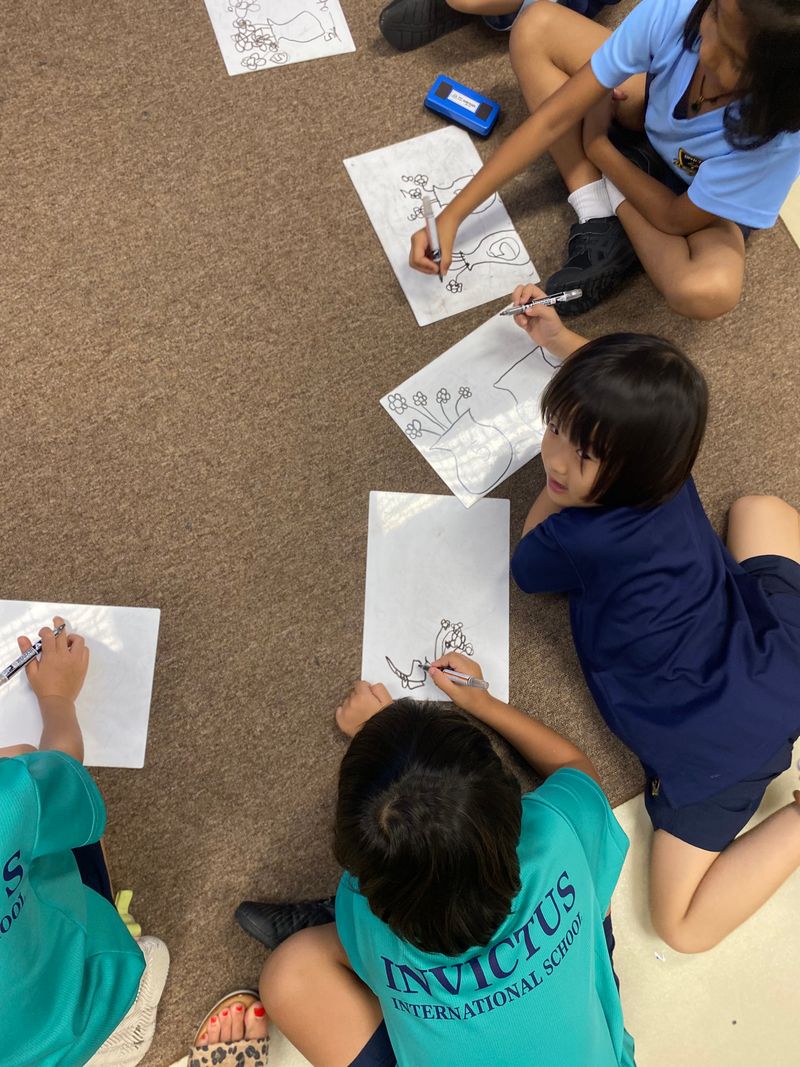
Global Perspective: Insights from Kinder World School
As a part of my research, I was able to engage in a conversation with Peter Baker, Principal Supervisor of 13 KinderWorld International Schools across Vietnam, I was able to dive deeper into how the Math Mastery approach works in large, diverse educational settings. These schools have adopted the Singapore Math model, a mastery-based framework built around explicit teaching and cumulative learning - many of the same principles I explored during my study tour.
Peter shared that their decision to adopt this approach was driven by a need for a consistent, evidence-based program that teachers could pick up quickly, deliver confidently and implement cost-effectively. “We started the explicit teaching model a couple of years back,” he explained. “We call it the KinderWorld Model. Retrieval practice to strengthen knowledge and problem-based application of learning is also included. I think it certainly makes a difference.”
What stood out to me in our discussion was just how closely their journey mirrors our own at TGS. We have already embedded strong practices in literacy through well-structured, whole-school programs that align with explicit teaching and the science of learning. However, mathematics remains an area where we see room for greater consistency and greater gains.
While our data confirms that we continue to perform above the state average in mathematics, recent NAPLAN results highlight a national decline in numeracy - a trend that we are aiming to avoid in our own School’s results. While we continue to do well, we have an opportunity and a responsibility to do even better for our boys. This is not just a local issue. In 2015, the Office of the Chief Scientist collaborated with ACARA to examine schools across Australia that had made significant improvements in numeracy over two years. Their report found that mastery-oriented environments were a consistent feature in high-performing schools (Smith et al., 2028).
When I asked Peter how the performance of his students compared to their peers in Australia, his response was compelling:
“We’ve had feedback from parents - many of whom are teachers - saying that when their children return to Australia, they are at least one to two years ahead in mathematics compared to their peers at home.”
This reinforces what global research has been saying for some time: structured, explicit, mastery-based teaching works. And more importantly, it works for all learners - not just the confident few.
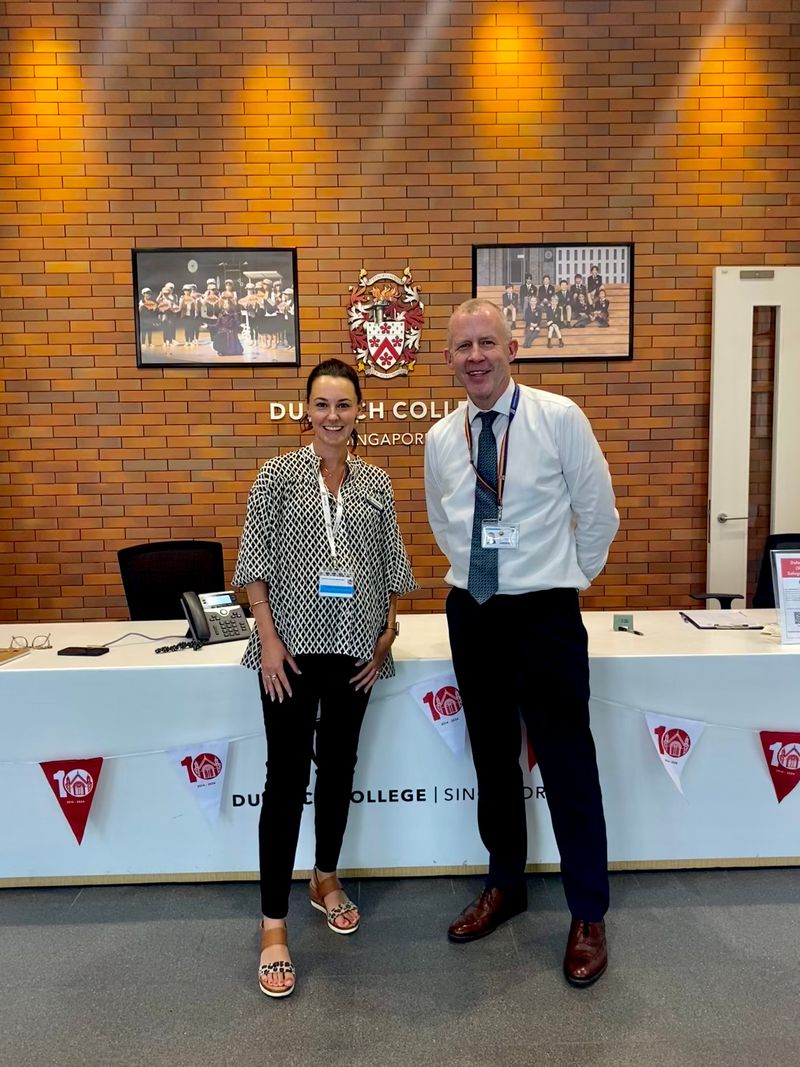
Bringing It Home: What’s Next for TGS?
I’m incredibly grateful for the opportunity this fellowship has provided - not only in shaping and deepening my own practice, but in contributing to a broader, shared vision for mathematics at TGS. This experience reinforced my belief that every student can succeed in mathematics when we give them the right tools, time and teaching. We are now laying the foundations for a clear and united approach to numeracy, one that will equip every boy with the confidence and skills to succeed - not just in the classroom, but throughout their schooling and beyond. And just as importantly, we’re building a community of confident teachers who are equipped to deliver lessons that are clear, consistent and deeply impactful.
I would like to sincerely thank Dr John Kinniburgh for granting me the opportunity to undertake this Fellowship. His support and encouragement throughout the process has been instrumental, and I am truly grateful for his guidance and mentorship. Dr Kinniburgh’s commitment to prioritising high-quality professional development for staff continues to shape a culture of growth and excellence in teaching and learning at TGS.
Latest Blog
Nothing is Impossible
Toowoomba Grammar School's Year 7C English has been studying 'Cool Runnings' to learn about how stories or movies based on real life aren't always completely true. Extremely fascinated by the topic, young student Harry Ryan took it upon himself to message (via LinkedIn) the bobsled driver, Mr Dudley Stokes - he responded! After a little communication between the two, Harry asked Mr Stokes if he could FaceTime him during an English lesson, to 'meet' his teacher Mr Paul Irwin and classmates…
Simple Acts of Kindness
Giving back to the community is an important value that Toowoomba Grammar School endeavours to instill in our boys. Year 12 student, Tumoana Strugnell is a shining example of how it costs nothing but our time to help others, especially as we move into the Festive season and the challenges of life seem heightened. I first became involved in community service when I was in Year 6, through my local primary school’s involvement on ANZAC Day and my parent’s involvement in local community events. I’m…
A Holistic Approach to our Boarders' Activities Program
A true education is about much more than just lessons in a classroom. It’s about providing experiences that challenge a child, physically and mentally. It’s about providing opportunities that build independence, resilience and that help develop their good character. Toowoomba Grammar School is proud to offer a broad and liberal education that stretches way beyond the walls of a classroom and equips our boys with the skills to flourish as an individual. We offer a diverse and engaging…
A Beginner's Guide to Manga
If your son has brought home a book with big eyed characters, and he seems to be reading backwards, chances are, he's discovered Manga. The Dent library has a Manga collection that would be the envy of many schools, with over 100 unique titles. It Is easily the most visited section in the library, over half of the top 100 titles borrowed this year are Manga! But what is Manga? Manga is an umbrella term for a variety of print comics and graphic novels originating from Japan. Unlike western…
A Safe, Welcoming and Joyous Community
Tell us about yourself My background, at least that associated with boarding and teaching, is long and varied with a number of different aspects leading to this chosen career path. For the most part, I was schooled in Canberra but had extended periods in Lesotho, Norfolk Island, and Samoa as a result of my father’s work in foreign aid. My schooling was quite disruptive, and I wasn’t a model student! I was always passionate about English; often distracting myself (amongst other things) immersed…
Facilitating Respect
Recently the 2022 TGS Prefect group spoke at the Headmaster’s Assembly about respecting individuality. But what does this mean? The foundations for a successful relationship with peers, family, co-workers, and others is framed and supported by a two-way street of respect. However, for this two-way street to be functional it is important to know that respect cannot be demanded, it can only be earned. Toowoomba Grammar School is no different and respect is nurtured in various forms such as in the…
The Benefits of Early Learning at TGS
Making a decision about our children’s education can be difficult; especially when there are so many options available. Once upon a time parents simply sent their children to the school that was a walkable distance from home. Much research has evolved since the early 1900s about what is best for our children to foster a love of learning and feel confident and safe in the classroom. Here at Toowoomba Grammar School, we take this very seriously. Pastoral care comes before anything else; we see…
Outside of the Text Book
“The limits of my language mean the limits of my world.” — Ludwig Wittgenstein There is no denying that learning a foreign language can sometimes be a challenging experience, particularly with limited opportunity to practise outside the classroom. However, learning a language is a skill that will add to many facets of your life, often without you even realising, and as part of a well-rounded education, the value of language learning cannot be underestimated. "A different language is a…
TGS Academic Enrichment Program for Boarders
Toowoomba Grammar School provides an inspiring and broad curriculum for boys, delivered by dedicated educators who understand how to engage boys in their learning. Our staff go above and beyond in providing an outstanding education and support network for our boys. They are regularly available to answer questions, assist with homework and assignments and provide academic support for all our students. This is particularly so for our boarders, thanks to our Academic Enrichment Program (AEP). All…